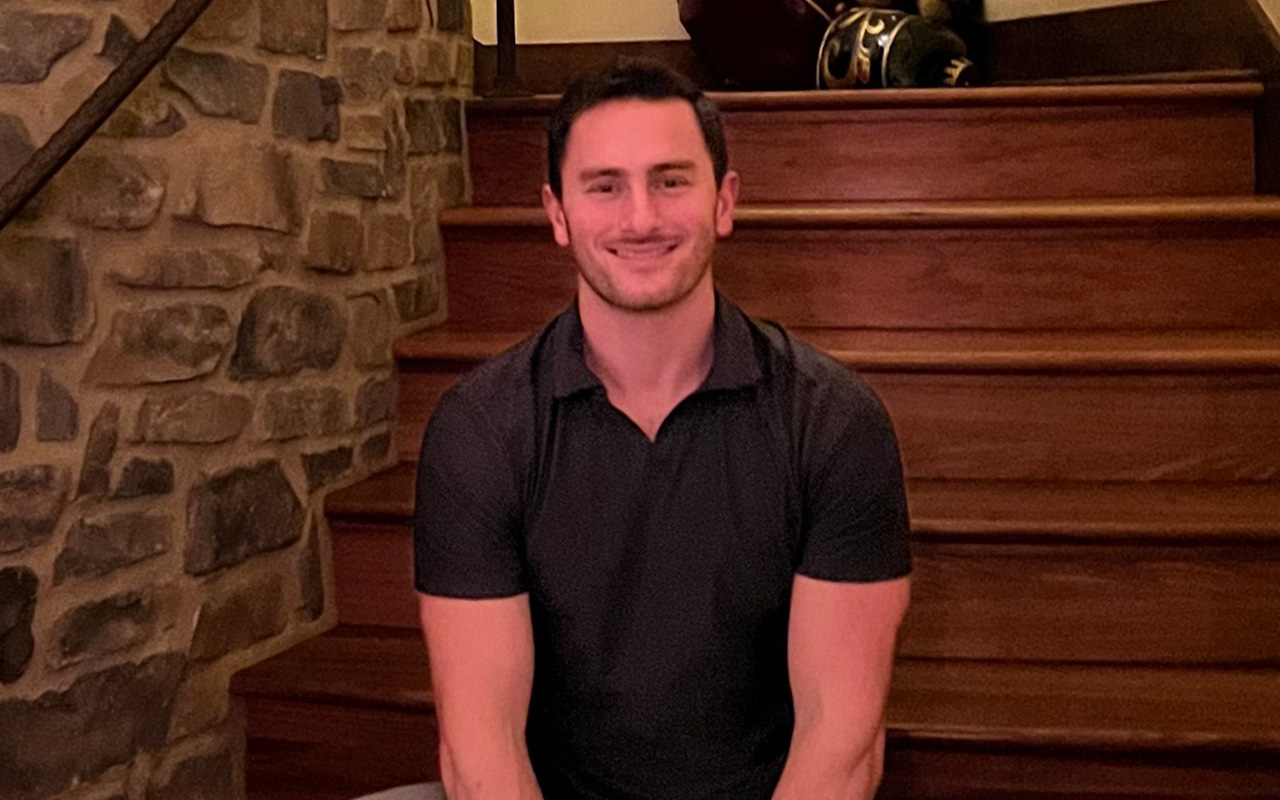
Ari Dimitriou photo courtesy of the artist
As Ari Dimitriou tells it, the family business came calling early. “We’re a small Greek immigrant family. When you’re Greek, you go to work for the Greek restaurant. For me, it was here.”
Here – as you might’ve guessed – is Dimitriou’s Jazz Alley, a restaurant of sorts and also the gold standard in Northwest jazz entertainment. Founded by Ari’s father John some forty years ago, the venue has employed Ari in various forms since he was fourteen. “I’ve done everything there is to do here,” he says.
Now 34, owner of a fresh MBA, the younger Dimitriou shoulders a corresponding business responsibility. I sat down with him at an empty midday booth to talk talent scouting, jazz’s place in Seattle, and his favorite Sixth Avenue memories.
This interview has been edited for clarity and length.
We’re seeing a changing of the jazz guard these days as many classic acts age out of touring. How do you keep Jazz Alley’s booking timely and relevant?
The music kind of marches forward. Jazz might not be as relevant as it once was, but we have young, exciting up-and-comers. We work hard looking for these people. We have agents that come to us. We talk to clubs. We go through YouTube, trade journals, radio. We try and find talented people who hopefully perpetuate the cycle of musical development. It is a lifecycle. There’s changes, and we roll with the punches.
So you scout New York Clubs? Los Angeles? Chicago?
Clubs similar to us in size. Blue Note [in New York]. The Dakota in Minneapolis. Yoshi’s [in San Francisco]. We have relationships with these people to say, hey, how did this go for you? Did you like them? Are they cool? I don’t know if the markets serve as 100% proxy for here, but it’s definitely informative. Sometimes we think things will go great and they don’t. There can be external factors involved – Bumbershoot, a baseball game. But we’re careful with the ticketing metrics. We follow them closely.
You’re butting up against South Lake Union here, where the city seems to be heading economically. How do we get more young Seattle money into Jazz Alley? Do you think they’re listening to jazz over there?
Amazon, that’s a tough one to crack. A lot of times they’re kind of transient, working like crazy. We’ve had some corporate events with them, and with Boeing. I feel like the way to get to them is social media. To be honest, though, they’ve been fantastic neighbors. Especially over COVID. Mostly, we hope people walk in and enjoy it and tell their friends. But it’s a conundrum.
You can’t steer the taste of an entire generation.
Right. Exactly.
Speaking of which, who were some of the artists you saw here who inspired your early love of jazz?
Roy Hargrove was a big one. Dr. John, Maceo Parker, Mike Stern. And Pinetop Perkins – he yelled at me once because he’s trying to light a cigarette inside and I said, you can’t do that. He was furious. But he’s got a relationship to Muddy Waters. That’s just amazing.
I used to bartend four nights, eight sets of Tower of Power. We’d have like twelve feet of drink tickets, sweating, getting pummeled. Definitely a lot of memories associated with that.
How about nowadays?
It’s great when Kenny G comes through here, he’s a hell of a player. He shows up early in the day, goes back there [to the green room] and practices, practices, practices. All day. He’s got the commitment.
Are there other artists you’ve seen with practice habits like that?
Al Di Meola. He’ll play as long as you let him, he’ll get done, and he’ll go home and keep playing. His management was telling me that, yeah, that’s just what he does.